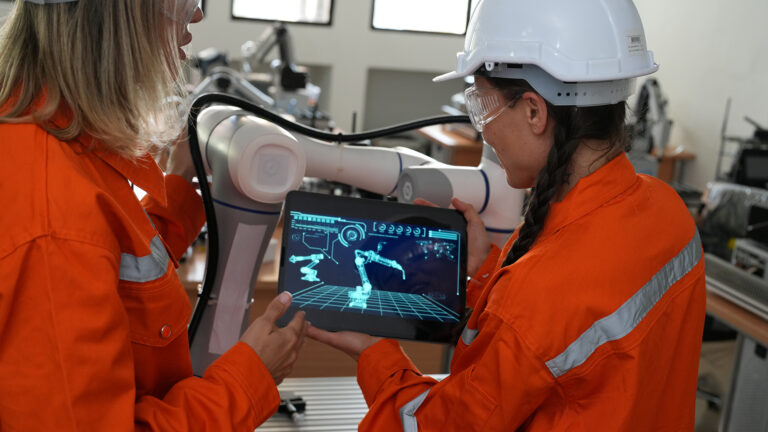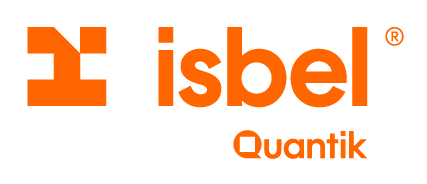Chemical manufacturing is a complex process that involves more than just the assembly of parts. Production quality and the need to obtain and transmit data in real time are some of the challenges faced by the chemical and plastics industry in general.
Among other things, chemical companies are looking to increase productivity and worker safety in a more sustainable way. Digitalization and Industry 4.0 technologies can help them achieve these ambitions by enabling them to have better control of their assets, as well as generate meaningful information from data and operate 24/7.
Many manufacturers are taking the first steps into the digital future by implementing the Internet of Things (IoT). According to predictions by ABI Research, by 2030, manufacturing and industrial companies will have deployed more than 49 million IoT devices in their facilities. In the chemical industry, this figure is expected to reach 4.8 million by 2030.
Chemical company spending on technologies such as predictive maintenance, digital twins, augmented reality (AR) and the industrial internet of things (IIoT) will have a compound annual growth rate (CAGR) of 6% through 2031, and will focus on wide-area wireless technologies (4.9G/5G).
The key to realizing the promise of Industry 4.0 is to combine new applications and devices with reliable, ubiquitous wireless connectivity. This sum of capabilities can make it easier for people, processes, sensors, robots and legacy machines to work together to achieve better results.
Accelerating digital transformation in the chemical industry

Manufacturing 4.0 use cases can be divided into four main categories, within which there are specific uses that can be implemented with 4G/5G private wireless networks.
Digital industrial campus
It involves use cases for digitizing assets in and around the campus to monitor the environment to ensure security.
Digital campuses include the use of sensor data to create digital plant twins, facility management, security and surveillance with cameras, drones and geo-referenced perimeters, as well as uniform and global smart connectivity.
Automated plants
It involves connecting all machines within the production processing area and monitoring them to improve communications and optimize their performance.
In addition to machine interconnectivity, IoT sensors, robotic cloud and cobots between areas are implemented in these plants for M2M control (i.e. robots created to physically interact with humans in work environments), as well as quality management to monitor and control the quality of products and processes using HD/4K wireless cameras. Also included are intelligent analytics to detect anomalies and errors.
Connected workers
4.0 applications help employees carry out their work more efficiently.
In terms of connectivity, adding sensors, cameras and mobile devices also contributes to efficiency. With the help of remote technical support, wireless HMI for machine control and a set of PTT/PTV communication services, the exchange of information and real-time status information is enabled.
Intelligent assets
The smart asset category includes AGV/AMR (automated mobile robots), advanced AGVs with LIDAR and SLAM, for the delivery of parts and materials to and from the warehouse and distribution center, as well as asset management for tracking or machine control purposes.
Wireless connection of all factory assets makes it possible to collect more data, enabling greater monitoring and analysis of operations to improve performance.
Private 5G for Southern Europe's largest chemical plant

Chemical company BASF plans to install a private 5G network at its production site in Tarragona (Spain). Deployed in collaboration with Nokia and Cellnex Telecom, the new network will provide a platform to accelerate the digital transformation of operations. BASF chose this technology following an extensive trial that demonstrated that the on-site 5G solution could meet the stringent connectivity demands of several key applications:
- Real-time license plate reading for security, vehicle tracking and vehicle guidance.
- Worker tracking devices and panic buttons for emergencies and accidents.
- AR/VR devices that provide real-time instructions to mobile workers.
- Mission-critical group communications with real-time location and push-to-talk and push-to-video services.
The company chose 5G technology because it increases data transmission speeds tenfold compared to 4G and reduces latency to 1 millisecond, one-tenth of current levels. In addition, 5G provides the high availability and reliability needed for critical applications, and can connect and manage up to 1 million devices per square kilometer.
These capabilities will play a key role in BASF's digital transformation and address the company's industrial connectivity needs for the next decade and beyond.
In addition, the leap to the 5G era will enable the company to develop new applications in essential fields such as security and operations. It will also open the door to IoT-enabled automation, big data analytics, augmented/virtual reality (AR/VR) and artificial intelligence.



